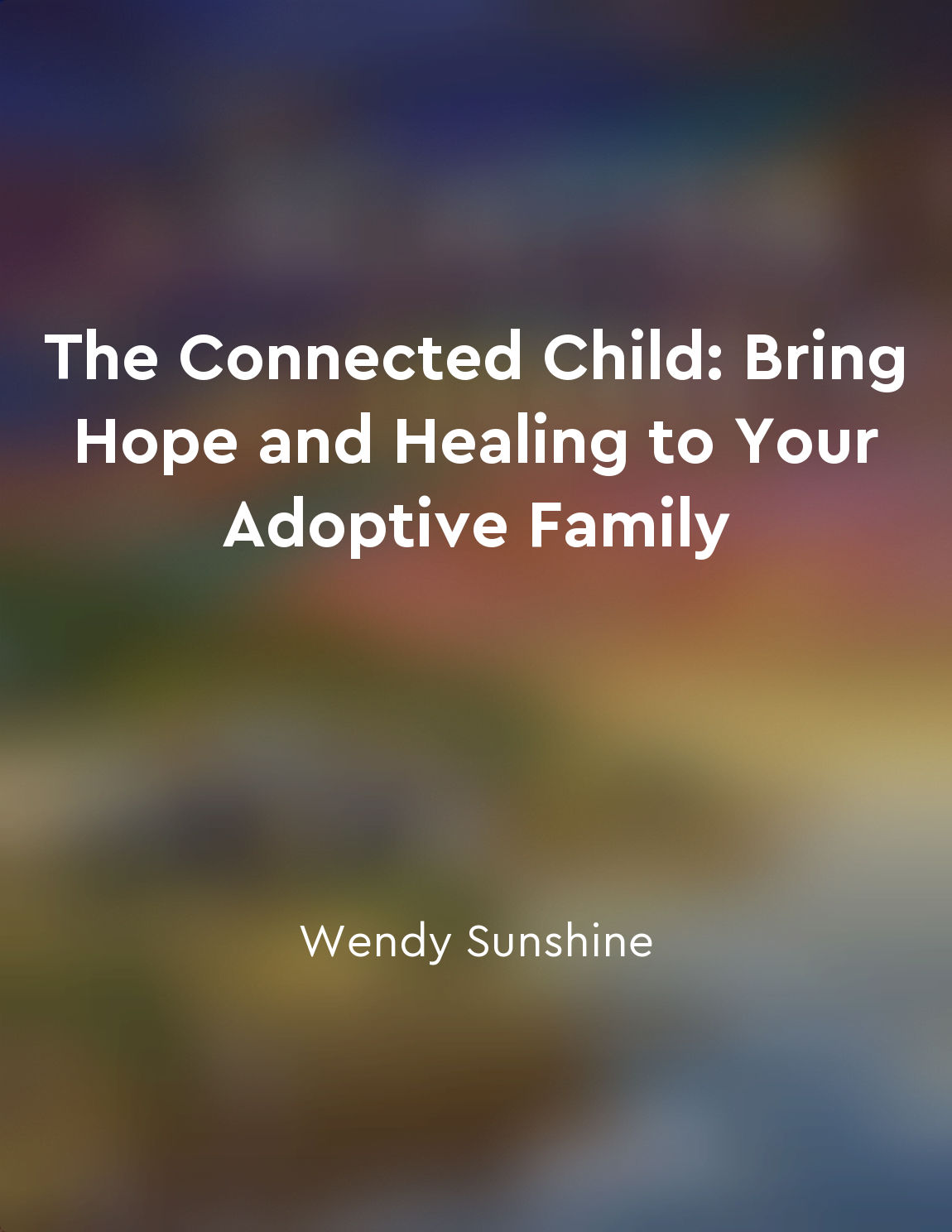Audio available in app
Reflecting on one's own childhood experiences deepens understanding from "summary" of Parenting from the Inside Out by Daniel J. Siegel MD,Mary Hartzell
As we journey through the complexities of parenthood, it is essential to take a step back and delve into our own past experiences. By reflecting on the way we were raised, we can gain valuable insights into our current behaviors and reactions as parents. Our childhood experiences shape the way we view the world and interact with others, including our own children. When we examine our upbringing, we may uncover patterns of attachment and emotional regulation that influence our parenting style. For example, if we were raised in an environment where emotions were dismissed or ignored, we may struggle to validate our children's feelings. This lack of emotional attunement can hinder our ability to connect with our children on a deeper level. On the other hand, reflecting on positive experiences from our childhood can provide us with a blueprint for effective parenting. If we were raised in a nurturing and supportive environment, we can draw upon those memories to create a similar atmosphere for our own children. By recognizing the impact of our past on our present parenting practices, we can make conscious choices to break negative cycles and foster positive relationships with our children. Moreover, exploring our own childhood experiences can enhance our empathy and compassion towards our children. When we empathize with the challenges and struggles our children face, we are better equipped to respond to their needs with patience and understanding. This empathy stems from our own memories of vulnerability and longing for love and acceptance.- Reflecting on our childhood experiences is an essential aspect of personal growth and self-awareness as parents. It deepens our understanding of ourselves and our children, paving the way for more meaningful and authentic relationships. By peeling back the layers of our past, we can cultivate a more conscious and intentional approach to parenting, rooted in empathy, connection, and love.
Similar Posts
Teach children about emotional intelligence
In Denmark, emotional intelligence is seen as a key component of a child’s overall development. Parents are encouraged to teach...
Men often feel torn between mother and wife
The relationship between a man and his mother is a bond that is formed from the moment he is born. She is the first woman he lo...
Embracing diversity and inclusivity fosters acceptance and understanding
In today's fast-paced and ever-changing world, it is becoming increasingly important for families to embrace diversity and incl...

Embrace the messiness of parenthood
Parenting is not for the faint of heart. It's messy, chaotic, and unpredictable. From the moment your beautiful baby enters the...
Quality time builds strong emotional bonds
Quality time is essential for building strong emotional bonds between parents and children. When parents spend quality time wit...

Play is important for bonding
Play is not just a frivolous activity that children engage in for entertainment purposes. It serves a much deeper purpose in th...
Celebrating small victories and progress can boost confidence and motivation
When we take the time to acknowledge and celebrate the small victories and progress that our children make, we are sending them...
Children of toxic parents may struggle with feelings of guilt and shame
Children raised by toxic parents often find themselves burdened by overwhelming feelings of guilt and shame. These emotions are...
Foster a sense of responsibility
Responsibility is a concept that is essential for children to understand and embrace as they grow and develop. By fostering a s...
Work towards social justice
I saw that the world was full of suffering and injustice. People were oppressed and discriminated against based on their race, ...

